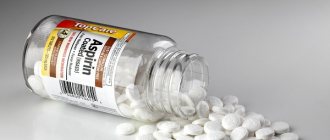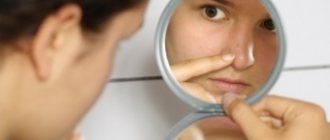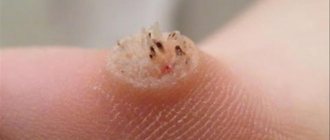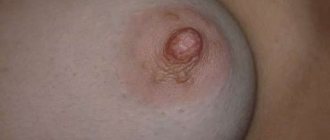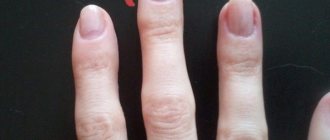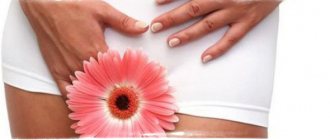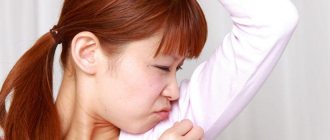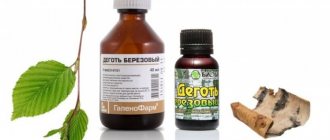Psoriasis is a disease characterized by red, scaly skin rashes (spots, plaques). Itching with psoriasis causes discomfort to the patient. The keratinized cells of the epidermis cause inconvenience of a physical and psychological nature. Causes and treatment, what drugs help a patient with psoriasis relieve itching and the most effective folk recipes that can be prepared at home - these issues will be discussed in detail in the article.
Cause of occurrence
Itching with psoriasis is evidence of intoxication or other disorders of the body. The main factors contributing to the manifestation of itching:
- endocrine disorders;
- disturbances of material metabolism in the body;
- nervous diseases;
- uncontrolled use of medications.
It also causes the development of an allergic reaction as a result of the use of untested cosmetics, liver diseases, and infection of inflammation sites.
Complications and consequences
Doctors use a special scale to determine the degree of itching associated with the disease. Unbearable sensations are scored 10 points. When severe itching occurs, the patient has an uncontrollable desire to scratch the plaques, which is prohibited, as hypertrophy of the nerve endings may develop. Constant scratching leads to even more itching.
Unpleasant sensations make the brain susceptible to external stimuli, as a result of which the patient develops Caeburn syndrome. It manifests itself in the fact that people experience a false appearance of itching in areas of the skin that are not affected by the disease. The patient cannot help but succumb to this feeling, and then new psoriatic plaques form on his skin.
Circumstances of risk
Factors contributing to the manifestation or intensification of itching:
- disease progression;
- improper use of medications;
- general chronic, acute poisoning;
- psychogenic, neurogenic consequences;
- addition of scabies;
- due to HIV-associated development of the disease;
- exposure to chemicals upon contact;
- hazardous production;
- climate change;
- digestive disorders;
- spicy foods, alcohol, coffee, chocolate.
Despite the pronounced signs, it is impossible to independently determine the disease. Special diagnostics are required, which are prescribed by a dermatologist.
Development of pathology
Itching is an invariable sign of psoriasis, regardless of the nature and location of the skin lesion. Its intensity ranges from mild tingling, burning to a strong urge to scratch the inflamed area. Why psoriasis itches can be found out by following the principle of the development of the process:
- the skin of a patient concentrates free radicals more than a healthy one;
- under the increasing influence of negative causes, swelling of the papillary layer occurs;
- Due to skin disorders, chaotic cell division occurs - they quickly peel off and become horny.
Does psoriasis itch at the initial stage?
Yes, unpleasant symptoms appear at the first rash, which indicates increased inflammation on the skin. The strength of the desire to scratch depends on the stage of the disease, the area of the affected areas and the location of the development of the pathological process. IMPORTANT! You should not scratch the inflamed areas - there is a high risk of the Koebner phenomenon: spots on the scratched areas.
When does psoriasis itch?
Psoriasis is a chronic dermatoses, but this does not mean that the skin will always itch. Itching in the affected areas and less often throughout the body occurs during the main periods of the disease:
- At the initial stage. Very often, itching is one of the first to appear, that is, there may not be any changes on the body yet, but burning and tingling sensations will already bother you. If small plaques remain on the body during the period of remission, then during the next exacerbation the itching usually begins precisely from these spots;
- At the stage of disease progression. During this period, new lesions appear on the body, old ones increase in size and can merge with each other. Itching in the progressive stage is very pronounced; the skin itches not only in places where tissues are localized, but also in healthy areas. Scratching the skin provokes Koebner's symptom, characterized by the appearance of new rashes under the influence of mechanical irritation;
- At the stationary stage. The intensity of itching during this period is significantly reduced.
Symptoms of the disease
Is there itching with psoriasis? Only in 80 percent of cases. When the pathology worsens, the skin becomes inflamed and convex (dense and rough) plaques form. Initially, areas on the folds of the skin of the elbows, knees, and finger phalanges are affected. If left untreated, further spread is possible.
DOCTORS RECOMMEND:
In order to get rid of psoriasis and restore the original health of the skin, use a proven method: apply a simple product for 7 days in a row...
more details >
Itching in psoriasis is divided into three stages, depending on the stage of the disease.
| Stages of the disease | Signs |
| Progressive | Small inflammatory lesions on the skin (papules), the appearance of new, very itchy rashes, itch. |
| Stationary | Reduction of itching with a change to a slight tingling sensation. |
| Regressive | Weakening of symptoms, significant reduction in itching. |
Other signs of itching:
- small cracks, bleeding of the affected areas;
- separation of the nail plates, change in shape, color (dimples, spots of various shades);
- itching in skin folds (for example, armpits).
IMPORTANT! Itching can occur before psoriatic spots break out. It signals the development of inflammation in the upper layers of the skin.
Elimination of irritating factors
Treating psoriasis and the itching it causes can take a long time. The effectiveness of therapy for this disease is determined not only by the drugs used, but also by adherence to a certain lifestyle . To avoid relapse of psoriasis and prevent new rashes, the patient must adhere to the following recommendations:
- Elimination of stress, adherence to work and rest schedules.
- Avoid exposure to various chemicals on the skin.
- Refusal from dangerous sports and too active recreation, which leads to trauma to the skin.
- Carrying out the necessary hygiene procedures using gentle products, soft washcloths, to prevent the appearance of new foci of inflammation.
- Preventing skin exposure to excessively high or low temperatures.
If you follow these tips and follow your doctor’s recommendations, you will be able to get rid of itching and other signs of psoriasis in the shortest possible time. And when the slightest symptoms of the disease appear, it is necessary to begin a set of treatment procedures, which will prevent an exacerbation.
Diagnostics
A dermatologist determines the presence of pathology by typical clinical manifestations and surveys, for example, does psoriasis itch or not? In 20 percent of patients, it does not itch at all - this should be taken into account when diagnosing the disease.
You may be interested in: What are the causes of psoriasis? Review of theories of the appearance of the disease
To clarify the diagnosis, he prescribes tests:
- general and blood biochemistry - changes are visible in advanced stages of the disease;
- total urine – changes in water-salt balance may indicate the presence of psoriasis;
- feces - to exclude helminthiasis, which often causes a feeling of itching of the skin.
There are other types of diagnostics.
Instrumental. Includes the following procedures:
- biopsy of the affected area;
- x-ray of joints;
- scraping with culture for microflora.
Differential. It is carried out when it is necessary to identify/exclude the presence of:
- helminths;
- skin (dermatitis) diseases;
- venereal - syphilis;
- parapsoriasis.
Effective ways to relieve itching during treatment
Special preparations and procedures with external systemic properties are used. This helps relieve inflammation, discomfort and remission of the disease, when itching practically disappears. Below is an overview of the main treatment methods.
Medication.
External medications are used: ointments, talkers. Relieves severe itching and improves skin.
Non-hormonal ointments.
Quickly help in the first stages of the disease:
- Salicylic ointment . It has a disinfecting effect and restores damaged skin areas.
- Calcipotriol (with vitamin D). Reduces the affected area, prevents keratinization and the development of cracks.
Attention! Do not immediately use medications containing vitamin D and salicylic ointment.
- Zinc ointment . Dries, relieves inflammation.
- Alfozil (with birch tar). Improves skin regeneration, restores blood supply to damaged areas. Attention: Use should only begin with small doses!
- Naftalan (with oil). Anesthetizes, cleanses of dead cells. Use strictly according to instructions to avoid complications during relapse.
- Kartalin (with solid oil). Normalizes cell metabolism, removes inflammation.
Hormonal ointments
They are distinguished by the concentration of the main substance. Having a low impact force, usually 0.1 percent, are prescribed to small patients. Can also be used by adults (1 percent) if the disease affects small areas of the skin. Strong compounds are used on extensive damage.
IMPORTANT! Hormonal ointments effectively cure the disease, but their high concentrations are often addictive, which reduces the therapeutic result.
Oral medications
Medicines are produced in the form of tablets and are used as additional means:
A story from the life of a patient with psoriasis
YOU CAN TOO GET RID OF PSORIASIS AND LIVE LIFE TO THE FULLEST
A year ago I managed to get rid of psoriasis. I did it without doctors, who just wanted to rip off money. On my own, at home, in just two weeks I “destroyed” chronic psoriasis, which had tormented me for years, and also significantly improved my health. I cured myself, and I’ll tell you how you too can get rid of this torment. This must be hard to believe? Of course it's difficult. I just have one secret, which I will tell you about next. This will certainly help you too.
Today I want to tell you about the new natural product PSORISIL
, which turned out to be incredibly effective. It has passed clinical trials and received quality certificates...
Find out more >>
- Tavegil . Relieves itching for twelve hours.
- Claritin . Antiallergic. Eliminates itching for up to a day
- Cetrin . A fast-acting remedy that retains its effect for up to three days.
Antihistamines such as Suprastin and others help.
Vitamins
Vitamins must be included in complex therapy:
- A – regenerates tissue, participates in keratinization of the skin.
- E – antioxidant, normalizes metabolism, synthesizes DNA.
- D – restores the epidermis, phosphorus-calcium metabolism.
- group B – normalize metabolic processes and the functionality of the nervous system.
They are prescribed only by a doctor, taking into account the patient’s condition and individual characteristics. Among the support packages:
- hexavit;
- Vitrum;
- undevit.
Sodium thiosulfate and calcium chloride relieve itching.
Physiotherapy
A course of physiotherapy is prescribed:
- ultraviolet irradiation (UVA, UVB);
- ultrasound;
- rays of Buki;
- magnetotherapy.
- PUVA therapy
Cryotherapy and telex-ray therapy are used. Additionally, they are treated with electrosleep and segmental ultrasound.
Head treatment
In addition to the comprehensive treatment of itching when the scalp is affected, you need to use special shampoos:
- With tar. Softening effect, relieve itching, promote regeneration.
- With zinc pyritine.
Traditional methods of treatment: how to relieve itching with psoriasis at home
Recipes are used to eliminate the symptoms of the disease.
Oils
Various plant extracts (almond, olive, etc.) are used to prepare masks. Warm it up before going to bed and tie it on your head after application. In the morning, wash off with the shampoo indicated above. Oils help remove dead cells and relieve itching.
To treat the intimate area, for example, the groin folds, a strong oak decoction is used (bark 1:1 with glycerin).
Baths
How to relieve itching with baths? You will need five liters of a mixture of coniferous pine decoction, chamomile, and St. John's wort. Baths with the addition of bran are used to achieve the greatest effect. After the procedures, the affected areas of the skin are moisturized with psoriasis creams. Take such a bath to soothe the skin, relieve inflammation, and activate regeneration.
You may be interested in: How to find out what caused psoriasis on the body by the location of the rash
Herbal treatment
You can relieve itching with psoriasis:
Dill. Two spoons of seeds are poured with boiled water (250 g), allowed to settle, and filtered. Take one hundred grams of infusion three times a day. Another recipe: grind dill seeds and use 1/10 tsp.
Nettle, mint, lemon balm. 8 spoons per liter of boiling water. The decoction can be drunk three times a day.
Burdock. Boil the root for 15 minutes (2 tbsp per 1 liter of water). Take one hundred grams four times a day.
Treatment with folk remedies
At home, baths with a decoction of celandine, chamomile, string, and St. John's wort help relieve skin itching due to psoriasis. You can add oatmeal to the water, but it is not recommended to carry out water procedures too often. Apply compresses from a concentrated decoction of calamus, valerian, peppermint, and dandelion root to the itchy surface.
In folk medicine, propolis is widely used to treat psoriasis; this bee product has a powerful antioxidant effect, relieves inflammation and activates metabolic processes. To prepare the medicine, grate 50 g of propolis and add 0.5 kg of softened butter. The ingredients are mixed until smooth and put in the refrigerator.
This ointment should be used to treat problem areas or make compresses (at night) until the skin is restored. Patients note that after using this product, the skin does not itch, peeling, swelling and inflammation go away faster, even without taking medications. It is contraindicated to use propolis if you are allergic to bee waste products.
Birch tar helps treat psoriasis. The medicine should be applied to the plaque and left for 10–30 minutes, then the skin should be washed with tar soap. The procedure is repeated daily before bed, after 1–2 weeks the condition of the dermis improves significantly.
Another effective folk recipe for psoriasis is lotions with a decoction of purslane seeds. Pour 2 tablespoons of fruit into a thermos, add a glass of boiling water and leave for 1 hour. After cooling in the prepared composition, moisten gauze and apply to the plaques; it is recommended to leave the compress overnight. To prevent the fabric from drying out quickly, you can wrap it in film or periodically moisten it with infusion without removing it from the body.
The formation of psoriatic plaques is accompanied by itching of the skin and gives a person a lot of discomfort. Getting rid of an unpleasant symptom is possible only with an integrated approach; medication, physiotherapeutic treatment, local treatment of problem areas, and therapy for concomitant diseases are required.
Keeping a diet
Along with taking medications and folk remedies, it is necessary to follow a diet. The daily diet, divided into three parts, should include fresh vegetables and fruits. Beetroot, carrot, cabbage salads are good. Be sure to add cumin, cucumbers, dill. A plus will be the consumption of proteins, they are found in seeds, chicken protein, and lean meats. Buckwheat and pearl barley porridges should also be present in the diet. Natural sweets – dried apricots, raisins. You need to give up fresh milk, citrus fruits, chocolate, strawberries, and tomatoes.
Prevention and skin care
To prevent the spread of the disease, it is recommended to observe:
- sleep and rest patterns that help normalize metabolic processes and hormonal balance;
- rules of personal hygiene, using products against skin irritations, including moisturizing creams. Use a soft towel.
- When washing your body during exacerbations of the disease, it is better to use a shower - it does not dry out the skin as much.
Clothes, shoes, and underwear must match the time of year. Avoid synthetics and other non-breathable materials. Avoid nervous overload, as stress has a negative effect on the treatment of psoriasis. You should engage in sports, gymnastics, and eat more vegetables and fruits to strengthen your immune system.
Treatment of psoriasis
Psoriasis affects the skin, but the problem actually lies with the immune system. Home remedies and anti-itch medications will not treat the cause of psoriasis. Some treatment options include:
Biological products
These products use biological chemicals to treat psoriasis. They are given through intravenous injections and are usually only given to patients who have not responded to other treatments.
System Tools
These medications change the behavior of the immune system, making it less sensitive. They may reduce symptoms of moderate to severe psoriasis. The new group of systemic drugs are more targeted, meaning these drugs may cause fewer side effects.
Forecast
Basically, it is favorable, especially in the initial stages of the disease. The main goal is to prevent relapses that accompany itching. It is necessary to avoid or stop the development of the inflammatory process. It is important to identify and treat concomitant infectious diseases, helminthic infestations (they greatly affect the immune system), reduce the level of immune T cells in tissue structures, and prevent nervous overload, which are common causes of the development of skin diseases.
If you follow the doctor's recommendations, there will be a long recovery period - the attenuation of the disease. The itching will begin to subside.
Dear readers! Subscribe to articles and share news on social networks.
Doctors' opinions and patient reviews
Igor Vyacheslavovich Litvinenko, dermatologist. Itching almost always plagues people suffering from psoriasis. But, fortunately, modern medications can get rid of it. But do not forget that in each specific case the medicine must be selected by a doctor. You should not self-medicate, because this can lead to a worsening of the patient's condition.
Olesya, 32 years old, Kineshma. I have been suffering from psoriasis for several years. Itching bothers you periodically, during exacerbation. I tried to fight with different means, but in the end I came to the conclusion that I needed to follow a diet, in particular, I had to give up chocolate. But there is a result.
Ivan, 45 years old, Komsomolsk-on-Amur. I am bothered by severe itching during periods of exacerbation of psoriasis, but I am saved by regular antihistamines. The only negative is that it is advisable to drink them at night. And during the day I take vitamins.
Kirill, 40 years old, Kamyshin. And complex treatment helps me. I constantly take vitamins, and during exacerbations, antihistamines, and take special baths. I am glad that periods of exacerbation do not last long.
This article has exclusively educational, encyclopedic and informational functions. It is necessary to obtain the approval of your physician before using the tips and recommendations described in this article. You should not self-medicate!
Do all forms of psoriasis cause itching?
Psoriasis causes scaly patches that may appear gray and is the most common type of psoriasis. It is also the most common cause of itchy psoriasis, although other forms of psoriasis also cause itching.
However, the itching can vary in waves - at one time the itching of the spruce is noticeable, at another the itching becomes unbearable. A person may have multiple types of psoriasis, have psoriasis lesions that are not itchy or that are only slightly itchy, and psoriasis lesions that cause severe itching.



